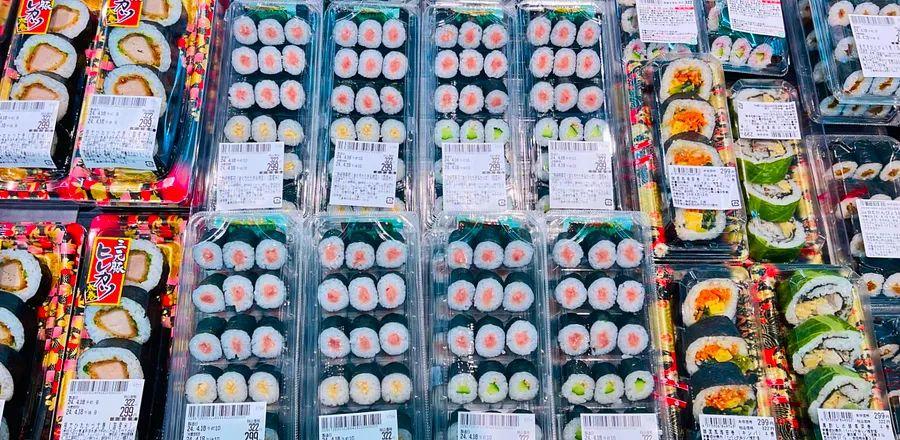Is Japan Really Affordable for U.S. Travelers Right Now?

Japan is currently a bargain destination, making this the perfect time to visit and take advantage of incredible value. With the yen at its weakest point in 34 years—down about 50 percent against the U.S. dollar since before the pandemic—tourism is surging. In March 2024, over 3 million international visitors flocked to Japan, setting a new record.
As of this writing, one U.S. dollar is worth approximately 156 Japanese yen, compared to around 100 yen five years ago. (Note that currency exchange rates are volatile, so the conversions mentioned are accurate as of the publication date but may vary later.) Why is the yen so weak? According to Frederick Gundlach, a U.S. CPA in Narita, Japan, one factor is the significant interest-rate disparity—Japan's rate is near zero while the U.S. offers around 5 percent for top mutual funds or deposits.
How can you make the most of your trip to Japan? Now's the ideal moment to upgrade your hotel accommodations, travel first-class on the renowned bullet trains, and indulge in high-end dining. For example, a lavish sushi meal priced at 30,000 yen would now only cost you just under $200, while in the past, that same amount would have been around 20,000 yen.
Shop Until You Drop
The shopping deals are so enticing that many travelers find themselves buying suitcases in Japan just to haul back their finds, including exquisite Japanese knives, as well as apparel and accessories from renowned fashion designers like Issey Miyake and Yohji Yamamoto. Numerous large department stores such as Isetan and Takashimaya, along with electronics retailers like Bic Camera, offer duty-free shopping, allowing you to avoid taxes while exploring Japan—not just at the airport. Remember to bring your passport and look for the white-and-red “Japan. Tax-free shop” signs. Many department or electronics stores will also provide foreign passport holders with discount cards at the information desk, typically around 5 percent off, and sometimes even more. After your shopping spree, present your receipts at the duty-free counter in the department store to reclaim tax, which can be up to 10 percent depending on your purchases.

MMpai/Shutterstock
Hotel Rates
The prices for Japanese-owned hotels have remained relatively stable lately—and that’s a positive development. The Tokyo Station Hotel and Imperial Hotel Tokyo are currently priced between 60,000 to 80,000 yen per night ($380 to $500), which aligns with their rates before the yen significantly weakened, although the dollar equivalent is now lower. However, some international hotel chains have drastically increased their rates due to a surge in tourism demand. For instance, the Aman Tokyo is now charging about 300,000 yen ($1,900) per night, compared to 110,000 yen in 2018.
For those traveling on a budget, Japan offers incredible value right now. Basic business hotels, featuring compact rooms and private bathrooms, conveniently located near major train stations, start at around 7,500 yen per night, which is less than $50.
Train Upgrades
A round-trip on the shinkansen bullet train from Tokyo to Kyoto currently costs 26,000 yen ($165), while the first-class green car option is priced at 38,000 yen ($240). It's worth noting that the price of the JR rail pass has recently risen, yet it remains a good deal depending on your travel distance. This pass offers unlimited access to Japan Rail trains, including shinkansen bullet trains. The standard seven-day JR Pass costs 50,000 yen ($320), up from its previous price of 30,000 yen. The seven-day Green Car Pass is priced at 70,000 yen ($445)—a solid option for a week of first-class bullet train experiences.

Photo by Volkan Kacmaz/Unsplash
Meals at a Minimum
A breakfast at a kissaten coffee shop, featuring coffee, toast, and a boiled egg, costs around 500 yen ($3). A bowl of ramen is about 1,000 yen ($6.50). If you add potstickers and a refreshing beer, your total will be 2,000 yen ($13). Remember, as Gundlach points out, “there is no tipping in Japan.”
Attractions and Skiing
Entry to the contemporary Mori Art Museum or the esteemed Nezu Museum in Tokyo is 1,600 yen ($10). The interactive digital art exhibit teamLab Borderless at the new Azabudai Hills urban village costs 3,800 yen ($24), providing a glimpse into the cultural experience in Japan.
For skiing enthusiasts, the famous Niseko Village ski resort in Hokkaido offers daily ski passes starting at 9,500 yen, which is just $60. In Hakuba Valley, Nagano, daily passes begin at 8,500 yen ($55). Keep in mind that food and accommodations at ski resorts tend to be pricier than in urban areas, but considering the exceptional powder, it's still a great deal compared to U.S. ski resorts that often charge over $100 to $200 for a day pass.
How Long Will the Yen's Weakness Last?
Gundlach mentioned that he cannot predict the duration of the yen's weakness. However, if you're not planning to visit Japan soon, consider purchasing some yen at a foreign exchange office or bank now; you can use it for expenses when you do travel. Thanks to the weak yen, U.S. visitors can enjoy longer stays, travel more extensively, and discover more of the country. There’s truly no better time to explore Japan than now.
Evaluation :
5/5



